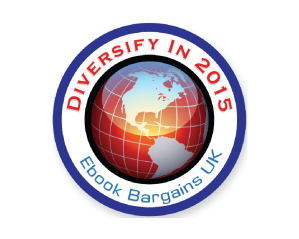This past year or so we’ve been plotting the rise and rise of the messaging app and advising messaging apps are where the future of book promotion lies.
Kobo’s owner Rakuten is gearing up its Viber site as a sales and promotion platform for Kobo ebooks. The Japanese messaging app LINE already has music subscription services in two countries. Many companies globally are using messaging apps to drive traffic and sales.
This week Amazon climbs on board with the Kindle store. The only surprise is that they’ve taken so long.
From Amazon (LINK):
“Kindle readers can share quotes and recommendations with specific friends, using their favorite mobile apps like Facebook Messenger, WhatsApp, texting, and more.
Friends who receive a share can instantly start reading a free book preview right from their phone, tablet, or PC—no need to sign up, sign in, or install an app.”
Its early days for Amazon’s venture into messaging apps. Expect a big expansion of this engagement as we hurtle into 2016.
And with Rakuten already owning Viber don’t be too surprised if Amazon picks up a messaging app of its own before long.
~
Okay, as promised, here’s a rough sketch of how this will work for indie authors.
First, we need to look on messaging app engagement as an extension of our email lists. While we may have gazillions of “followers” and “friends” on sites like twitter and Facebook, we all know a good mailing list outperforms them all, because the people who have signed up have made a specific request to be kept updated on our latest releases, news, whatever.
But here’s the thing. Readers generally are not writers. Not every reader is comfortable with email, and likewise not every reader will be on Facebook or twitter, let alone following or friending us.
A reader who doesn’t use Facebook or twitter or email is not going to be able to sign up for our latest news. But chances are those same readers are using Facebook Messenger, or WhatsApp, or LINE, or Viber, or WeChat, or KakaoTalk or Nimbus or…
And just a reminder here. WhatsApp and Viber alone have over one billion users between them.
So developing a messaging app list is just like developing an email list, except that instead of sending out emails we send out messages (with images and even video if needed), which the recipients receive direct on their smartphone.
How does it work for us?
Let’s take the hugely popular WhatsApp (800 million users, 70% of whom access the app daily) as a guide. With subtle variations the same will apply to other apps.
Back when WhatsApp launched in 2009 it was very much a one-to-one service. You sent a text message to one individual. The idea behind the apps was to bypass the text fees telcos charged. Messaging apps are either free or charge a token subscription fee. WhatsApp costs $1 a year.
In 2013 WhatsApp rolled out “broadcasting” (other apps have similar) which essentially means you can send the same message to a number of people at one time without revealing the contact numbers to others, so like a blind CC email.
At the moment WhatsApp has a limit of 250 contacts for a broadcast, but that’s a great starting point. And you can simply have variant lists, slightly differentiated, to get around the limit. You have 1,000 contacts? Just send four messages, each very slightly different. Facebook has already made exceptions for big companies using WhatsApp to reach more people, and the broadcasting limit will surely be raised for others as we go. Other apps vary.
Facebook itself has an organic reach of 6% – that is to say, just 6% of “friends” on average actually see the posts we put up.
Now compare message broadcasting where you have effectively 100% reach, just like with your email list.
The key is to get readers to sign up in the first place, and in the case of messaging apps it means adding your number to their phone. So in the first instance you need a number. Don’t use your personal number.
Most smartphones nowadays come with multiple sim capacity, so simply buy a sim card and keep that number exclusively for promo. Then get that number out on your website, blog, regular promo campaigns, etc. In fact, tweet and FB it!
The key then is to treat your new contacts with the same respect you show your email sign-up contacts. Sending out a message ten times a day seven days a week will have people delisting you like crazy. Remember, EVERY message you send will ping on EVERY phone EVERY time.
So from the beginning, think global. If you are building a contact list on WeChat to boost your China sales or trying to get a contact list going in Australia or New Zealand, bear in mind that (unless you live there yourself) their time zone will be the reverse of yours. Sending out a message in the early afternoon in London or New York may not be appreciated by the recipient in Beijing, Canberra or Wellington being woken in the early hours with a pinged message. So when you compile your broadcast lists, doing so by country or continent might be a good starting point to consider.
Keep your broadcast messages short and pertinent. No nd 2 use txt-spk. Proper English is fine. But keep it succinct. Individual readers who want a further engagement will let you know. But message too often and you’ll have people delisting you, just like with email mailing lists.
On WhatsApp you can create and edit lists just like with an email list. You can have a list of contacts in Siberia and list of contacts who only read your children’s books and another list for readers who only read your hard core erotica with dinosaurs titles. Messaging apps really are just email lists for reaching readers who don’t like email.
A reminder of the top ten social media messaging apps:
WhatsApp
Viber
WeChat
LINE
Kakao Talk
Kik
Tango
Nimbus
Hike
MessageMe
There are many, many more, and if you are looking at the global markets it’s really worth doing some research and finding out which app is doing well in a particular country. LINE, for instance, is big in Thailand. Nimbus has 25 million users in India. A full post on messaging apps by territory another time.
Messaging apps on top of FB and twitter!!! “No! No! No!” we hear you cry. But hold on.
Yes, its more hassle for us poor, over-worked, under-paid indie authors. But as we’ve said here before, if we want to stay ahead of the game we need to stay ahead of the trends.
Just like, not to very long ago, we all had to sign up with and learn how to use Facebook and twitter and our blogs. Oh, and that crazy new thing called KDP that allowed us to bypass the query system and actually publish our books ourselves.
Yes, we can all scream “Gimmick! Gimmick! Gimmick!” and pretend it’s not happening. But it’s happening anyway.
Just ask Amazon.
And no, before someone says it, no-one can do them all. Don’t even think about it. But that doesn’t mean you shouldn’t try at least a few.
Think about the next five years, not the next five weeks.


